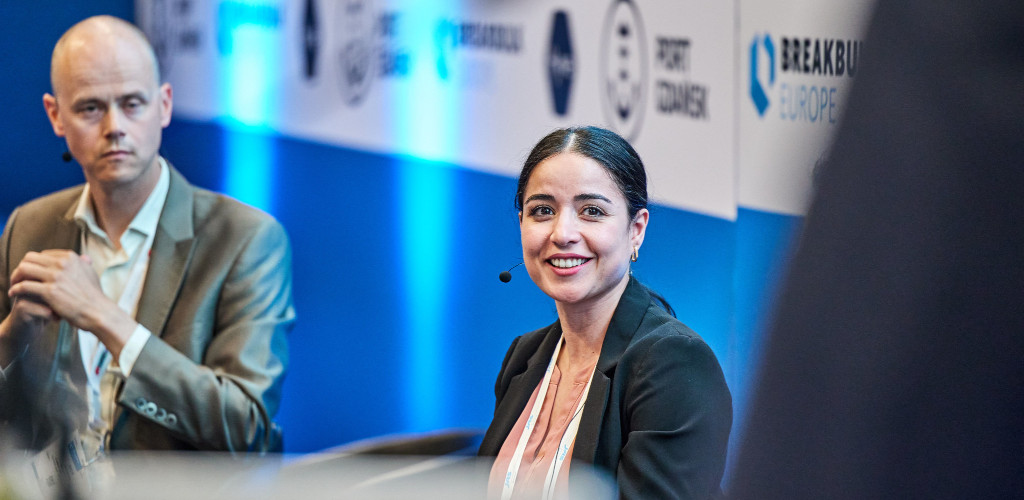May 19 | 2022
Session Speakers Discuss Standards for the Industry

By Simon West
SAME-DAY BREAKBULK EUROPE COVERAGE: How can carriers and shippers work together to record and report their emissions and become more sustainable? That was a key question for panelists in Breakbulk Europe’s Sustainability Across the Supply Chain session, moderated by Stephen Spoljaric, corporate manager of global logistics at Bechtel Corporation.
The U.S.-based engineering, construction and procurement company, or EPC, has been advocating this year the three Rs: Record, Report and Reduce.
“Our belief is that if we cannot be good at recording, and understand how we are going to report, the reduction part is nice, but you cannot really gather any details from it,” Spoljaric said.
The enjoyable session, presented in a gameshow format whereby each participant rang a small bell to respond to a question – or, in the case of speaker Rick Bruinsma, senior project manager at Jumbo-SAL-Alliance, his daughter’s bicycle bell – looked at how breakbulk could learn from efforts in the container industry to produce standardized reporting guidelines for operators.
If containers can do it, why can’t breakbulk?
Asma Ouchan, business development manager at Smart Freight Centre, a non-profit organization focused on reducing greenhouse gas emissions from freight transportation, pointed to the challenge of bringing shippers and carriers together to exchange data.
“The methodology is there, however the alignment between shippers and carriers – that is the tricky part. Data exchange, that is the biggest issue,” Ouchan said.
Tim Killen, chief sales officer CSO at deugro, said his company already uses online tools to understand, measure and report to customers information on emissions for different modes of transport, but admitted that, industry-wide, the practice was still in its early stage.
“With our partners we have taken a big step forward, and I think it is going to progress in the next few years as well.”
Which entity should have responsibility for defining and drafting the first guidelines?
“There needs to be government involvement,” said Killen. “We signed up to the commitments of COP26 last year, and leaving it to industry on their own without government support, intervention and guidance I think would be not the right step.”
Henrik Andersson, head of sustainability at Höegh Autoliners, said the sector was on the right track, but it needed better access to carbon-neutral fuels and technology.
The moderator also asked if carbon offsetting and carbon credits were a positive development.
According to Bruinsma, a thin line exists between carbon offsetting and greenwashing, while Killen said that for it to work, there needs to be strict monitoring.
“It needs to be assessed, it needs to be audited and it needs to be qualified by a third party to ensure that the commitments and promises that were made in terms of offsetting and trading are actually delivered.”
Check out our interviews with the speakers from this session:


